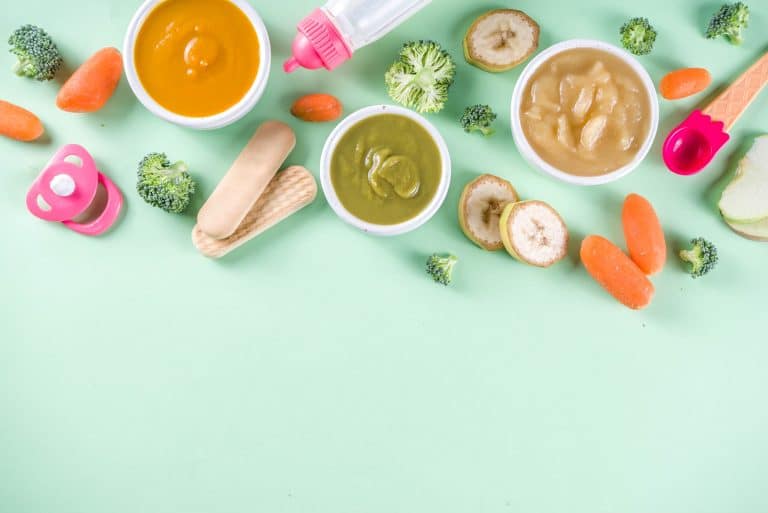Becoming a parent is a journey filled with countless decisions, and one of the most important ones is introducing your baby to solid foods. Here, baby food pouches have become increasingly popular among parents for their convenience and nutritional value. This article explores the benefits and best practices for using this to guarantee your small one gets the best onset in their food journey.
What are The Benefits:
It offers several advantages that make them a popular choice for parents:
Convenience: These are incredibly convenient for busy parents on the go. They are easy to keep, transport, and serve, making them a practical option for feeding your baby anytime, anywhere.
Portion Control: Pouches come in pre-measured portions, ensuring your baby gets the right amount of food without any waste. This helps in maintaining a balanced diet for your little one.
Variety: Manufacturers offer a wide range of flavours and combinations, allowing your baby to explore different tastes and textures, which can help develop their palate from an early age.
Nutritional Value: Many pouches are formulated to provide essential nutrients like vitamins, minerals, and fibre, promoting healthy growth and development.
Less Mess: Unlike traditional baby food jars or homemade purees, pouches are mess-free and reduce the chances of spills or accidents during feeding.
Best Practices for Using These:
While it offers numerous benefits, it’s essential to use them correctly to ensure your baby’s well-being and encourage healthy eating habits:
Read Labels Carefully: Always check the ingredients and nutritional information on the pouches. Opt for products with no added sugars, artificial flavours, or preservatives. Look for those containing real fruits, vegetables, and whole grains.
Use Age-Appropriate Pouches: Different stages of development require different textures and consistencies. Ensure you choose pouches suitable for your baby’s age and developmental needs.
Serve as a Complement: It should complement, not replace, homemade or freshly prepared foods. They can be a convenient addition to your baby’s diet but should not be the sole source of nutrition.
Avoid Over-Reliance: While convenient, over-reliance on these may limit your baby’s exposure to different textures and flavours. Encourage your child to explore a variety of foods, including whole fruits, vegetables, and grains.
Encourage Self-Feeding: As your baby grows, encourage them to self-feed. Squeezing the pouch themselves can help develop fine motor skills and a sense of independence.
Monitor Quantity: Be mindful of how much your baby consumes from the pouches. Follow your paediatrician’s guidelines for portion sizes based on your baby’s age and appetite.
Rotate Flavours: Introduce new flavours regularly to keep mealtime exciting and promote a diverse palate. This can help prevent picky eating habits in the future.
Storage and Hygiene: Store opened pouches in the refrigerator and use them within a day or two to ensure freshness. Always check for any signs of spoilage or damage before feeding your baby.
When to Introduce These:
Introducing it can vary depending on your baby’s readiness. Typically, around 6 months of age, when your baby can sit up with support and show an interest in food, you can start offering purees from pouches alongside breast milk or formula. You can transition to chunkier textures and more complex flavours as your baby grows.
Remember that every baby is unique, and their readiness for solid foods may differ. Always pay attention to your baby’s cues and adapt your approach accordingly. Gradually increasing the variety and texture of foods can help develop their palate and ensure they receive essential nutrients for growth and development
Summing it Up:
In conclusion, baby food pouches can be a valuable addition to your baby’s diet, offering convenience and various nutritious options. By following the best approaches outlined in this guide, you can ensure that your baby enjoys the benefits of pouches while receiving a well-rounded diet encouraging healthy eating habits. Remember to read labels carefully, use pouches to complement other foods, and monitor your baby’s intake. The right approach can be a helpful tool in your journey as a parent, making mealtimes enjoyable and nutritious for your little one.
Additionally, it’s important to stay informed about the latest recommendations on baby nutrition, consult with a paediatrician for personalised advice, and introduce a wide range of textures and flavours gradually to expand your baby’s palate.Ultimately, the key is to prioritise your baby’s health and enjoyment of food while fostering healthy eating habits that will benefit them throughout their life.









